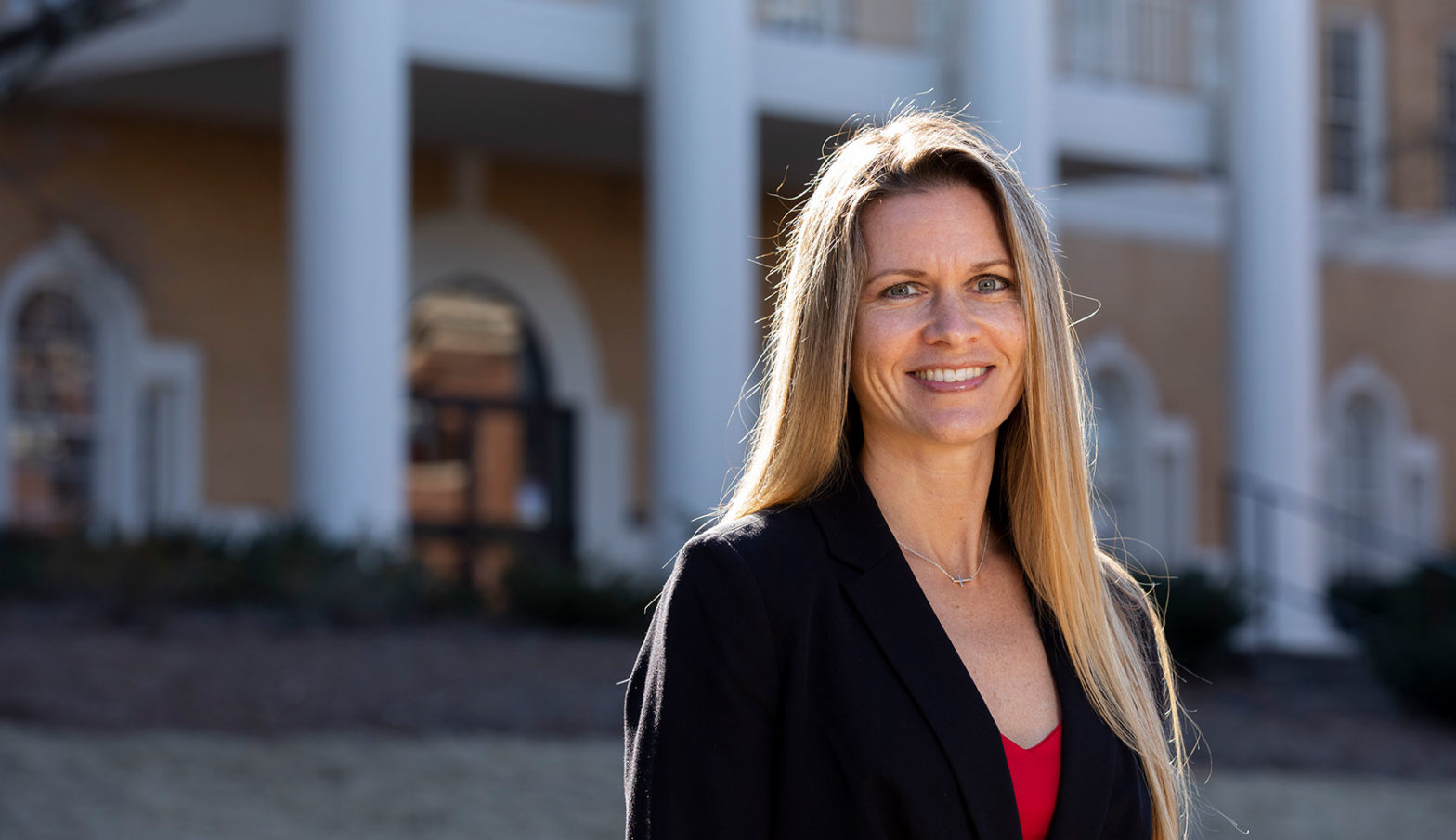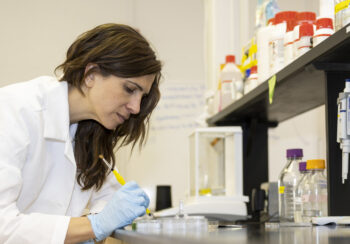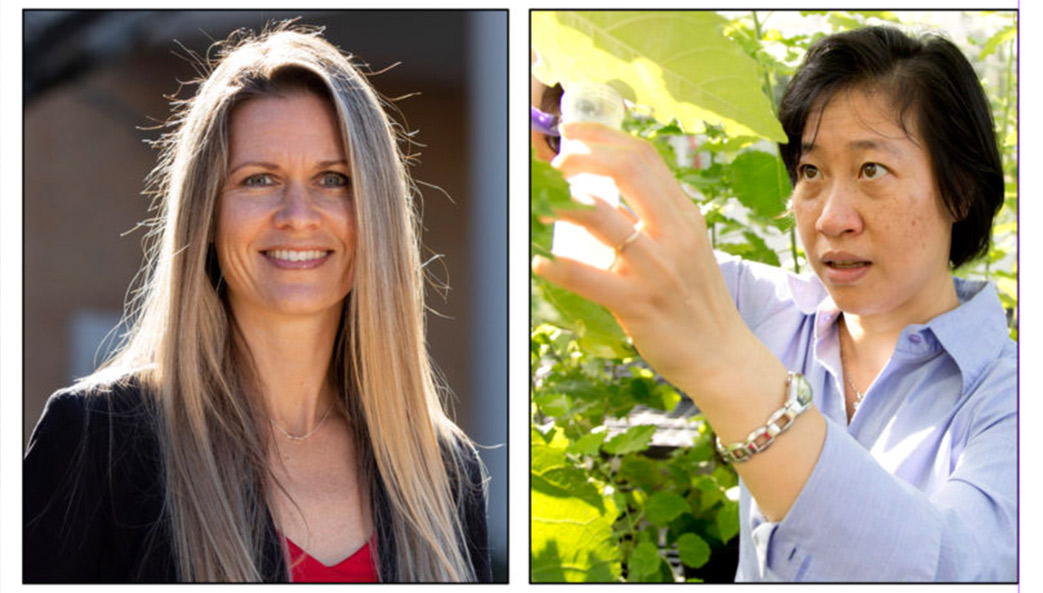Combating an issue as complex as obesity requires a collaborative approach.
“It is a complex, multi-factorial disease,” said Jamie Cooper, a faculty member in the UGA College of Family and Consumer Sciences. “It’s not one thing that’s causing it, so there’s not one thing that’s going to fix it.”
Cooper, associate professor in the Department of Foods and Nutrition, recently was named director of the UGA Obesity Initiative, a major campus-wide collaboration launched in 2012 to address the obesity epidemic in Georgia.
According to the most recent statistics from the Centers for Disease Control and Prevention, the prevalence of obesity in the United States is 39.8 percent, affecting more than 93 million adults. As childhood obesity becomes a bigger problem, Cooper discusses her vision for the Obesity Initiative and the role UGA will play in combating the epidemic.
Why is the work of the Obesity Initiative important?
There is an obesity epidemic, and it’s a major public health concern. One of the reasons it’s so important to study and try to find ways to combat this is because it affects so many aspects of a person’s life. From a health perspective, obesity is associated with increased risk for other chronic diseases such as diabetes, cardiovascular disease and even some cancers. In addition, there are a number of studies that have linked obesity with other negative outcomes in life aside from health. This is a topic that affects the economy, medical care, people’s daily activities and numerous psychological outcomes. One can begin to see why it is really important that UGA has this initiative. We have a high prevalence of obesity, and it’s not going away quickly.
How did you first become interested in obesity research?
From the very beginning of my career, I have been interested in ways to prevent excess weight gain throughout the lifespan. When you examine the obesity epidemic more closely, you find out that people do not gain large amounts of weight in a short period of time. Rather, it’s creeping obesity, which is a slow, progressive weight gain that over time becomes problematic. As obesity researchers, we’ve discovered that once people have put on a substantial amount of weight, it’s really hard to lose that weight, and it’s even harder to maintain that weight loss. So there’s been a shift in the thinking for obesity researchers of going more to an obesity prevention model.
One of the things we look at in my lab are the small changes people can make to affect their metabolism and appetite in order to prevent further weight gain. Specifically, we’ve done a lot of work to understand how the composition of fat in the diet can alter metabolism and/or appetite measures and the impact it has on energy balance. More recently, my lab has also been studying periods of time where people are more susceptible to weight gain, such as the holiday season and vacations. We are finding that the majority of annual weight gain can occur during holidays and vacations. If we can prevent holiday/vacation weight gain, we can help people be healthier and hopefully prevent some or all of the annual weight gain that contributes to obesity over time.
What is your vision for the Obesity Initiative?
I really want the Obesity Initiative to be the face of obesity research, and when people think about obesity research, I want them to think of the University of Georgia. The way we do that is by promoting collaborations across disciplines, both within and outside this university. There are a lot of great scientists here who are doing some great obesity-related research, and there are also great scientists around the country. I want to foster a collaborative environment for researchers, so they can see what other people around campus are doing and find ways to work together on grants and research projects—again, with the end goal of trying to combat this epidemic.
What would success for the Obesity Initiative look like?
You could probably look at success in a couple of different ways. One measure is that people are turning to us for the latest science and expertise on obesity. I think another measure of success can be the studies that are being carried out by faculty members. Are we getting people from different facets of science working together for a common goal? This can show up in the form of grants—are we getting more federal grant money to study this? Are we presenting more at national and international conferences? Are we publishing more? Are we working with our media liaisons to get the information out to the public? Those are all different ways we can measure success. But it starts with great research and with fostering collaborations among faculty across disciplines to address a number of important obesity-related questions.
How many different people and groups do you anticipate will be involved in the initiative?
There are more than 130 people on the Obesity Initiative listserv right now, and it is interesting to see where all of these people are. We have people from agricultural economics and business to molecular biology and genetics, and everything in between. That is a strength of this initiative—obesity-related research needs to span that entire spectrum. As much as people want to get involved in the initiative, we will have those opportunities for them, and we’ll try to foster as many collaborations as possible.
Can this initiative promote transformational change in Georgia and beyond?
I’m optimistic. I don’t think I would have taken this position as director of the OI if I didn’t think we could really make progress and do some good. Are we going to completely reverse the obesity epidemic overnight? Absolutely not. But can we make some strides and some progress? I think we can. It takes initiatives like this to really try to bring the researchers together. There are a lot of great scientists, a lot of good critical thinkers, and if we can bring them together, we have a better chance of combating the epidemic than if we’re isolated.






